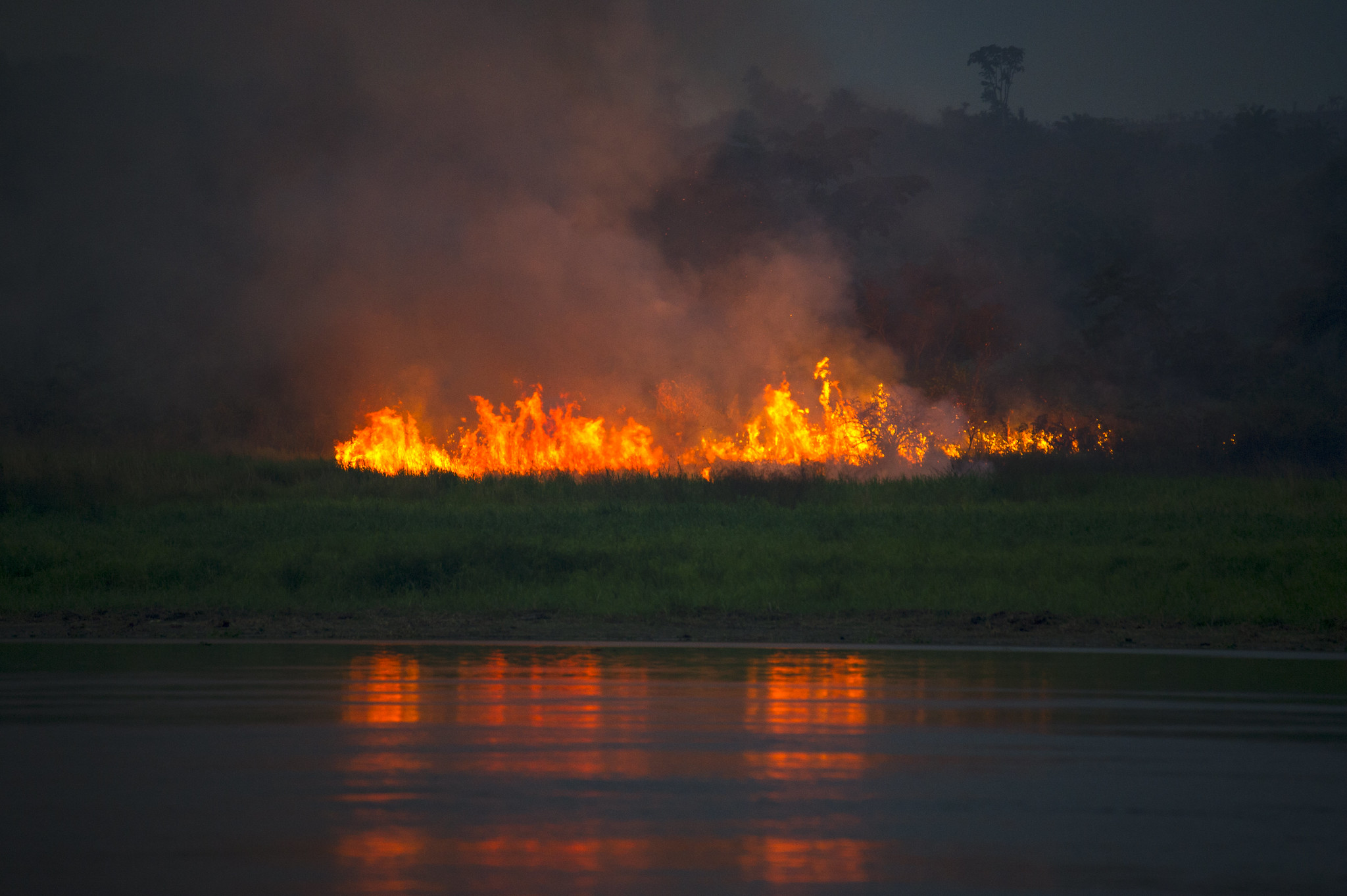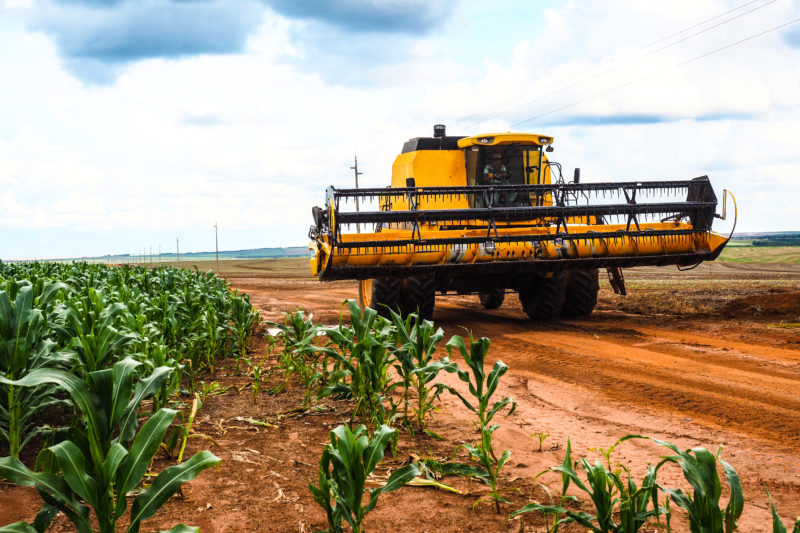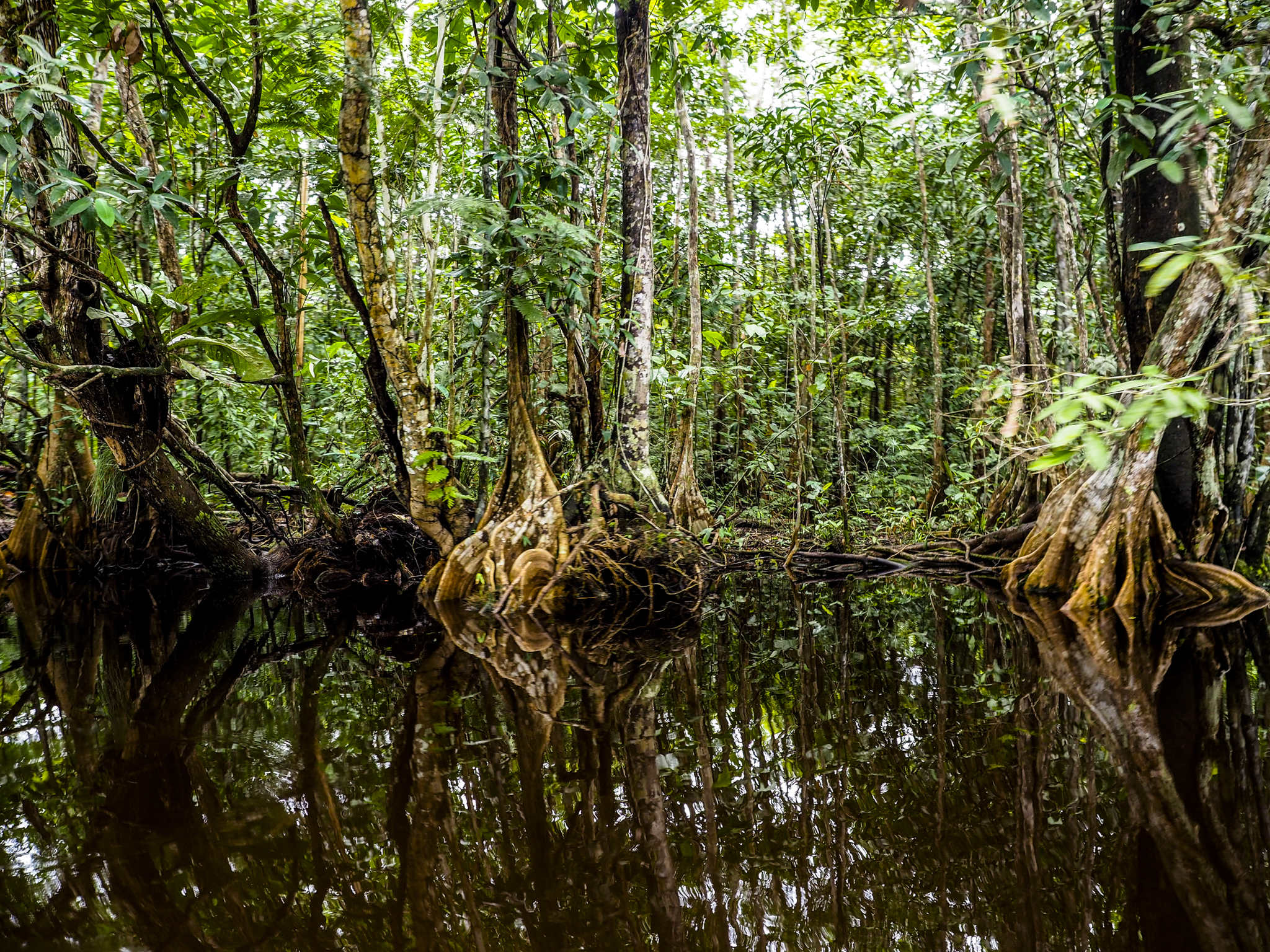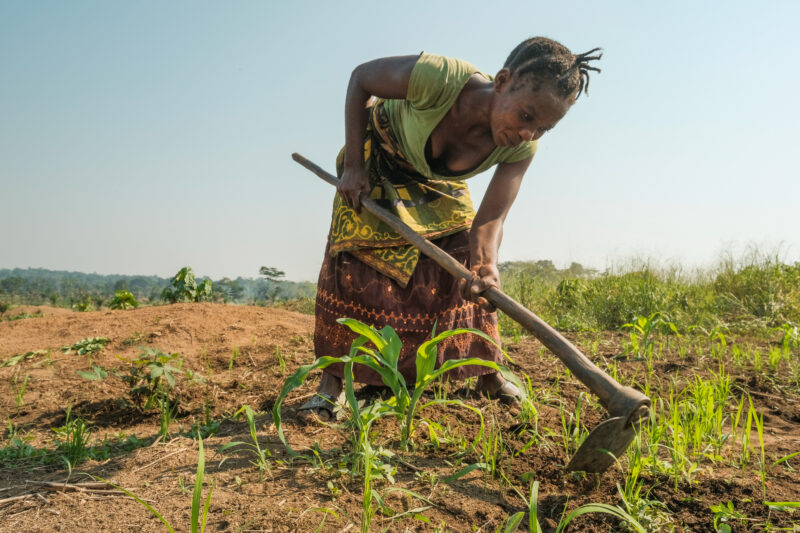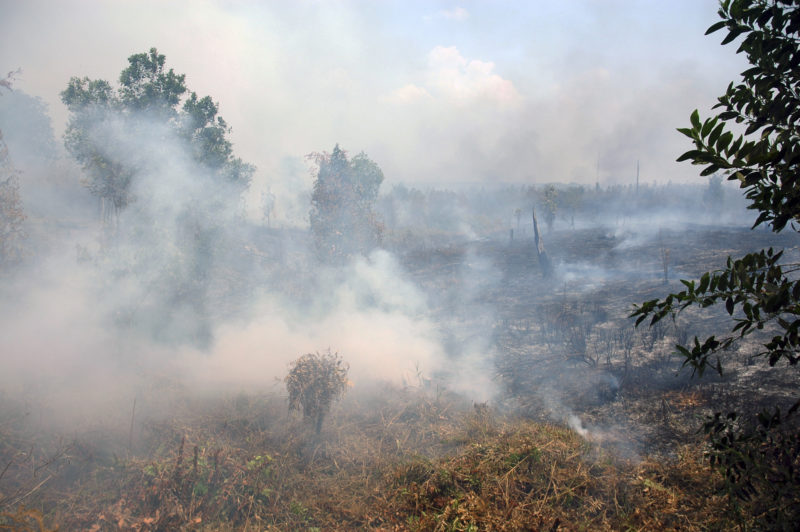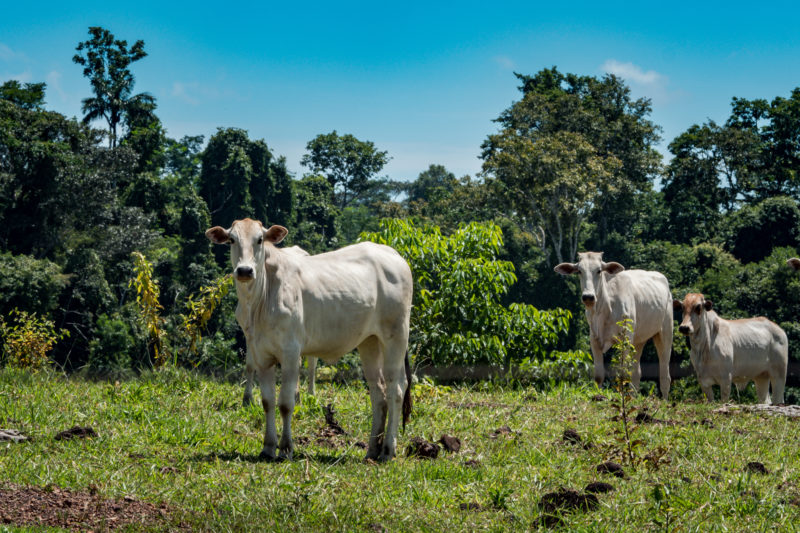Why are tropical forests destroyed?
Expanding agriculture to an ever increasing population, production of soy, palm oil, beef and pulp and paper continues to eat large chunks of tropical forests each year.
Every year, humans continue to expand into large areas of tropical forests. The IPBES report published in 2019 noted that 100 million hectares of tropical forest has been lost in the years from 1980 to 2000. This is equivalent to tropical forest loss three times the size of Germany.
What drives deforestation is a complex mix of many different actors and underlying causes:
- Land use policies have a great potential, but often fail to increase production of food and commodities while reducing forest destruction.
- Current economic systems have failed to reflect the true value of nature and intact ecosystems.
- Permanent deforestation is above all commodity-driven, tied mainly to the production of beef, soy beans, palm oil, and pulp & paper.
- However, these underlying causes vary greatly from region to region.
We are increasingly aware just how we depend on forests and the services they provide, such as fresh water, clean air, and biodiversity. The loss of nature is a threat to humans as well as to animals, and the loss of tropical rainforests results in significant Greenhouse Gas (GHG) emissions that drive climate change.
An estimated 23% of total human-caused greenhouse gas emissions (2007-2016) derive from Agriculture, Forestry and Other Land Use (AFOLU).
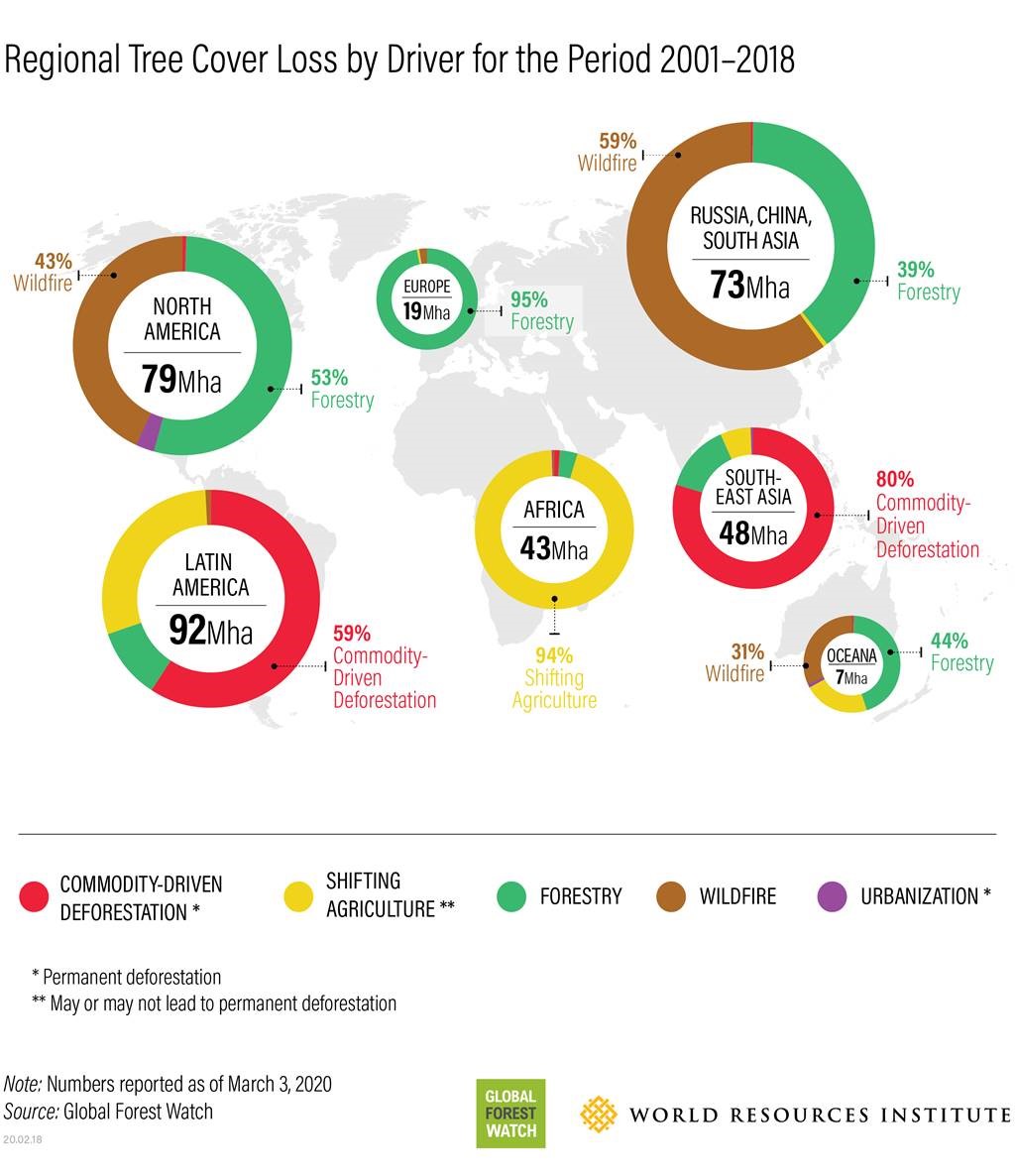
Visit these websites for further information on this topic:

